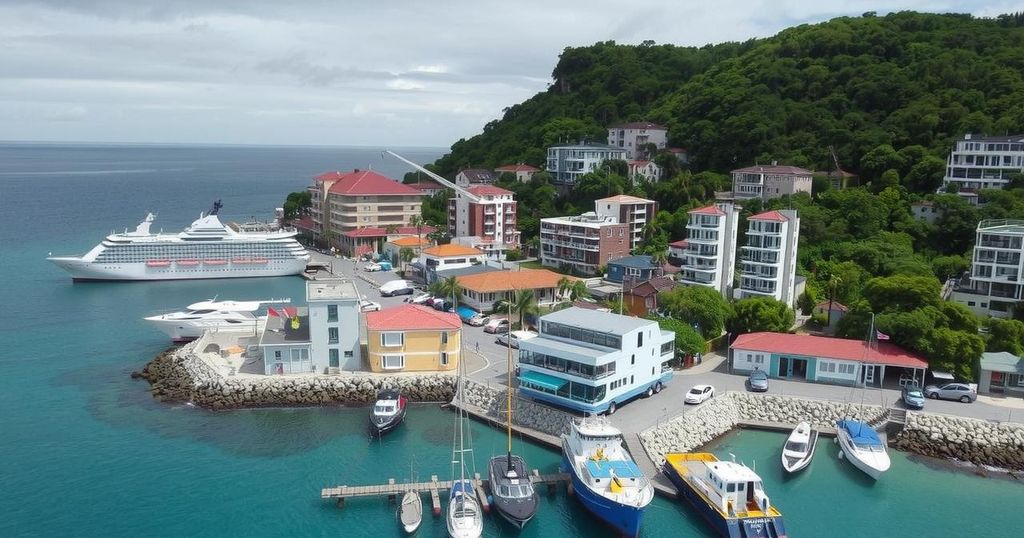France Deploys Urgent Aid to Mayotte Following Cyclone Chido’s Devastation

France is providing urgent aid to Mayotte after Cyclone Chido devastated the island, leading to potential casualties in the hundreds or thousands. Over 800 rescue personnel are being dispatched as critical infrastructure suffers. Mayotte is highlighted as the poorest territory in the EU, facing significant challenges in recovery efforts after the storm’s destruction.
On Mayotte, a French overseas territory in the Indian Ocean, urgent aid is being dispatched by both maritime and aerial means following the devastation caused by Cyclone Chido, which hit the island this past Saturday. Reports suggest that the cyclone may have claimed the lives of hundreds or even thousands, although the official death toll currently stands at 14. Over 800 rescuers are en route to the region to assist in the recovery efforts and to assess the extent of the destruction.
The aftermath of Cyclone Chido has left Mayotte in a dire state, with entire neighborhoods completely destroyed and crucial infrastructure such as the main airport and hospital sustaining severe damage. Power outages are widespread, creating significant challenges for aid delivery due to the incapacitation of the airport control tower, permitting only military aircraft to land. Mayotte, home to approximately 300,000 residents, is economically disadvantaged, making recovery efforts even more precarious.
The Prefect of Mayotte, François-Xavier Bieuville, indicated on local media that the death toll might be considerably higher than currently reported, noting the devastating impact on the impoverished communities characterized by informal housing structures. Furthermore, behavioral customs such as quick burial practices contribute to the difficulty in tracking fatalities, particularly among undocumented migrants.
Chido’s ferocity, categorized as a level 4 cyclone with wind speeds exceeding 220 kilometers per hour, prompted authorities to issue warnings across neighboring regions including Comoros and Madagascar. Following landfall in Mozambique late Sunday, the cyclone’s effects are anticipated to impact more than 2 million people in further areas, including Malawi and Zimbabwe, as they brace for potential flooding and evacuations as Chido moves inland, albeit at a weakened strength.
This catastrophic event adds to the historical pattern of severe cyclone activity in the southern Indian Ocean, with past storms like Cyclone Idai and Cyclone Freddy resulting in significant loss of life across the region. The current plight of Mayotte underscores the vulnerability of coastal territories to extreme weather and the pressing need for enhanced disaster preparedness and response strategies.
Cyclone seasons in the southwestern Indian Ocean typically occur between December and March, characterized by the emergence of powerful storms that often inflict substantial damage on affected regions. Mayotte, being one of France’s poorest territories, grapples with socioeconomic challenges that exacerbate vulnerability to natural disasters. The island’s population faces obstacles related to infrastructure and emergency preparedness, especially given the presence of informal settlements. Historical data reveals that previous cyclones have caused extensive fatalities and damage, necessitating ongoing efforts to improve resilience against future environmental crises.
The tragic impact of Cyclone Chido on Mayotte highlights the urgent need for efficient disaster management and robust infrastructural support in economically disadvantaged areas. The human toll may be staggering, prompting the French government to mobilize resources and personnel quickly. As recovery efforts commence, it is crucial that long-term strategies are put in place to mitigate the risks posed by future cyclones in similar vulnerable regions.
Original Source: ny1.com







